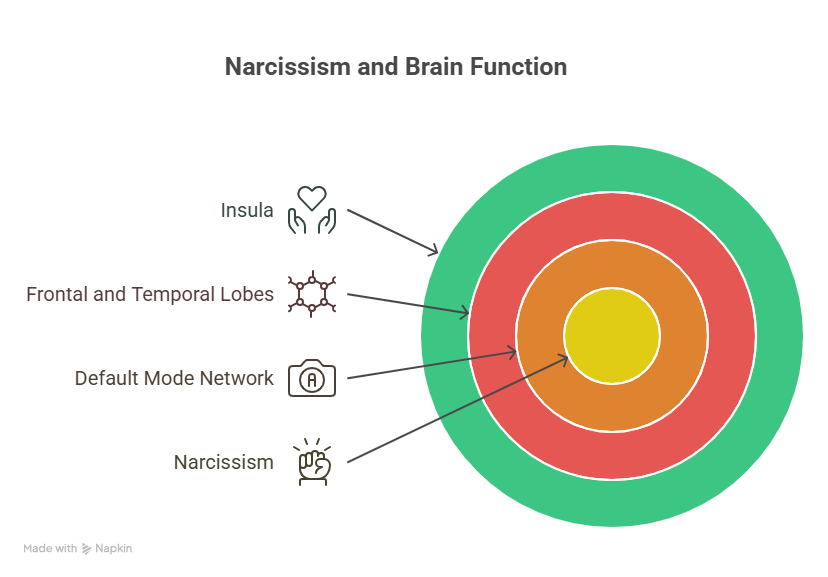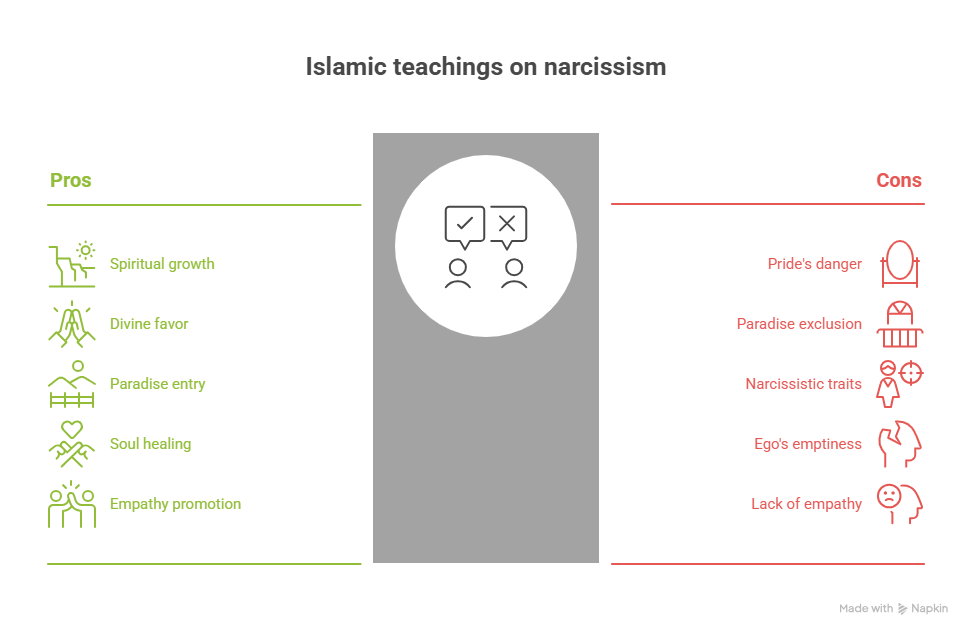Written by Raheela Shahid & Taaha Ahmad
Table of Contents
A Familiar Face, A Hidden Heart
It began (which is the beginning of most stories) with promise and charm. I could recall when Fatima got married to Amir and everyone remarked that she was his soul mate. He laid all his attention on her, said she was his world, and made fawning wooing gestures like some handsome prince from fairy tales. However, discordancies began to emerge after the marital union. Is he a narcissist?
A casual joke became a barb, and warm compliments turned cold. One evening Amir noticed Fatima’s new dress and asked with a smile, “Isn’t your dress a little snug? I barely recognised you.” He laughed it off, but Fatima’s heart sank. This wasn’t playful teasing; it felt like a test she was failing.
Day by day, the loving husband Fatima knew began to slip away. Amir, who had once admired Fatima proudly, started criticizing and ignoring her. After small mistakes he would brood in silence. Fatima was afraid of everything that might go wrong with him. And what had I, in the world, done to be done so? she said to herself, sorrowfully. The things, so quietly spoken by Amir, as though to no one but herself, they were never so soft, the things that tore her, were, what he said, You need to do better.
She began to feel trapped and alone. Amir had once been the sun in her life; now he was a storm cloud of mood swings. She barely recognized the man he was becoming, or herself. This was the narcissist’s masquerade: a bright smile to the world, but in private a storm. The man she loved had a secret war inside him, and she was caught in the crossfire.
The Brain Behind the Mask: Neuroscience
Stories like Fatima’s happen more often than we’d think, and science is starting to explain why. Brain imaging reveals that narcissists literally have self-centered wiring. When narcissists think about themselves, key brain regions (frontal and temporal lobes) light up strongly. Researchers have even identified a “narcissism circuit” in these areas. Much of this overlaps the brain’s Default Mode Network, basically an internal selfie mode. Meanwhile, regions like the insula (linked to feeling others’ pain) tend to be underdeveloped. For example, one MRI study found narcissists had less gray matter in the left anterior insula, a part tied to compassion. In short, their brains are wired a bit for “my first.”
This neurological reality means the narcissist’s empathy circuits are underpowered by default. It doesn’t make them monsters, but it does make caring harder. It’s not just a bad attitude, there are real brain differences. Imagine an internal radio stuck on a self-absorbed channel, drowning out softer signals of kindness. Understanding the science shows us why telling someone to “just care” doesn’t work; the switch is deeper. In therapy, this means change often requires patience and practice, because these patterns run in the wiring.

Growing Under Shadows: Developmental Roots
Narcissistic traits often start in childhood. Psychologists describe a kind of “emotional neglect” where a child’s feelings are ignored or only met with approval when they excel. If you’re raised with the lesson “Your worth depends on perfection,” you might build a grand façade to feel safe.
One counsellor noted two adults raised in such neglect who both thought “I don’t matter.” One coped by acting superior, the other by always pleasing others, but both ended up needing validation outside themselves.
It’s not just coldness that can cause this; too much praise can backfire, too. Some experts note that children who grow up hearing they’re special no matter what often develop narcissistic tendencies.
Put in other words, when the child is always told that he is the best without any boundaries, this can distort his/her self image. Lack of any critical adoration or lack of any genuine love may leave the child insecure on either end of the spectrum. They are brought up on a weak ground and secretly they believe that they are worthless unless they are perfect or get attention.
Narcissism can be a coping strategy for an inner child who never got unconditional love.
The War Within: Grandiosity vs. Fragility
Even the proudest narcissist is waging a private war.
Most of the time, behind all the bravado, there is in fact a sensitive ego. Psychologists observe that narcissism is most of the time accompanied with intense lack of confidence. It is unknown to give an example to live in an emotional tornado: one minute they are invincible, other is empty.
An Executive who is a high-achiever may be able to go around telling his colleagues how well he is acing it, but when nudged, he can fall into a state of panicking.
In therapy, we learn that these individuals pump themselves up to defend against a constant inner critic that whispers “You’re not good enough.”
This internal seesaw is what makes the narcissist so unstable. They live on a roller-coaster of self doubt to maintain the mask in place. They require constant applause to live and even a slight criticism makes them feel attacked as individuals. As a matter of fact, most of the time the largest adversary of their being is themselves, that thing that lurks within the soul in fear of being deemed little.
It’s a secret war where the heart hides under layers of bravado. Sometimes even the narcissist would trade some of their power if it meant a bit of true peace inside.
Pride Meets Mercy: Islamic Perspective
In Islam, arrogance is spiritually dangerous and humility is the cure. The Quran explicitly warns, “Do not walk on earth exultantly; indeed, Allah does not love the arrogant.” This means strutting around with your nose in the air is displeasing to the Divine.
The Prophet Muhammad (S.A.W) was even stronger: he stated, that whoever has in their heart an atom of pride shall not enter Heaven. The first one is pride, according to him which is refusing the truth and despising people. These teachings describe exactly the narcissist’s attitude.
Prophet Muhammad ﷺ was the exception to this rule as he was a humble and caring person. He did what he could to serve others, asked to be forgiven even of those who did wrong to him, and did not brag about himself.
In a famous saying he ﷺ reminded us that “Allah will raise those who humble themselves and will lower those who behave arrogantly.” In practice, this means showing mercy and being considerate elevates a person’s soul.
In addition, the Prophet (S.A.W) said, “All of you are not true believers until you love what you love yourselves to exist on your brother.” His teachings were that the indication of actual faith is empathy and not ego. In a nutshell, narcissism can be cured with the message of Islam: humility and compassion (both of which were a part and parcel of the Prophet ﷺ) cure and raise one up, the exact opposite of a narcissist whose pride is a fake.

A Way Forward: Healing The Heart and the Mind
The big question is: is it possible to change a person who is enslaved by narcissism? Psychology says it’s difficult but not impossible. Real change often needs therapy. During counseling, cognitive-behavioral approaches can indirectly confront the narcissist and normalize his or her superior sense of being and help the narcissist to confront his past hurts.
Therapists can also be advised to engage in empathy practice by responding to themselves with the question of what it would feel like in case they were treated this way by another person, and develop how to listen to others. The change of even deep patterns might not be natural at first but with time and support it is even possible to achieve. It is possible to teach empathy and humility, to some degree all at a time: the brain is more malleable than most people imagine.
On the spiritual side, hope is powerful. Islam preaches that the mercy of Allah is immense to those, who seriously repent to him. Even a narcissist should begin by praying that God should be able to change his/her heart. Sincere good deeds, charity, patience, kindness, chip away at pride faster than any achievement ever could.
The Prophet (S.A.W) taxpast lives of kindness is what matters as opposed to rank. Even the most proud person can be made to learn humility by being reminded in our own imperfection and going out there to serve others.
Knowledge and self-care are the ways to heal those who have to live with a narcissist. It is so much healthier to establish boundaries, find a supportive person or counsellor and recall: the reaction of the narcissist is not about your value but rather about their structure.
In Islam, you’re also advised to be just and patient. You can excuse from here on out and you can not be a dependable. Your religion ought to guide and your study of human nature should also shape your conduct. With wisdom, empathy, and faith combined, even painful relationships have room to heal a little.
Conclusion
Narcissism is a rather complicated character who is a conglomeration of bruising and cabling who is seen to be impervious to the outside world, but to the inner soul is swathed in a damaged character. A better picture is presented when we look in the eyes of science, as well as, the spiritual eyes.
Neuroscience provides us with a brain that is already equipped to think of self; psychology provides us with the early childhood natures of neglect or gratification.
Islam focuses on the perils of arrogance and grandeur of mercifulness. All this, when combined and put in one sentence, shows us that behind this grandiosity, there is usually a cry of distress and that even that hollow heart can be filled again.
We may never make a narcissist fully empathetic overnight, but understanding these layers helps victims heal and opens a door for compassion.
Call to Action
Should this article sound familiar, you are not the only one and there is help. Try to talk to a close person, have a conversation, the most important is to break the silence. When you worry you might be thinking like that or running that way or someone you are close is thinking the same, contact help: a therapist, a counselor, a faith adult. Learn to be compassionate just by viewing the example of Prophet Muhammad.
For practical steps, Eastern Psychologist offers articles, workshops, and counseling on these themes. When you are a narcissist in need of self-awareness or as one who has a narcissist, take care of your mental health. Healing and an understanding process also starts with a step; make yours today.


Pingback: 8. The Hidden Mind: Deception, and the Normalcy Illusion - Eastern Psychologist